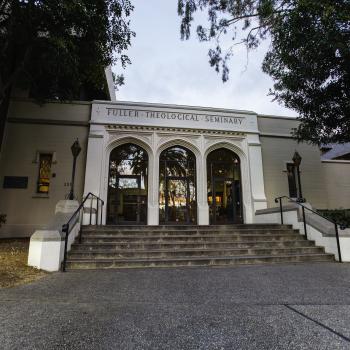by Dr. Dale S. Ryan
Just about everyone who is actually working a twelve step program will tell you that recovery is fundamentally a spiritual process. As the steps themselves suggest, the outcome of the process is a “spiritual awakening”. A slogan you sometimes hear in A.A. expresses it well: “Talking about the spiritual part of the program is like talking about the wet part of the ocean”. As you might expect, this spiritual emphasis has been the focus of a lot of criticism of Alcoholics Anonymous and other twelve step fellowships. For example, Wendy Kaminer in her book I’m Dysfunctional, You’re Dysfunctional says this:
“Although the literature about recovery from addiction and codependency borrows heavily from family systems theory and seems, at first, an offshoot of pop psychology, it is rooted most deeply in religion. . . .More than they resemble group therapy, twelve-step groups are like revival meetings, carrying on the pietistic tradition.”[1]
Other secular critics who experience the twelve steps as either too spiritual or too Christian have responded by forming alternative fellowships such as Rational Recovery or LifeRing which lack any spiritual or Christian emphasis.
The extent to which twelve step fellowships are essentially spiritual in character is not just an interesting theoretical question. Consider, for example, the recent case of Barry Hazle. In 2006 Mr Hazle was on parole related to a prior conviction for drug possession. As part of the terms of his parole he was required to complete a 90-day, substance abuse treatment program. In spite of his request not to be sent to a religiously-based treatment program, he was required to attend a program that emphasized the twelve steps of Alcoholics Anonymous. When he objected that this was a violation of his religious liberty, he was declared in violation of the terms of his parole and was returned to prison. He sued the state of California claiming wrongful incarceration and violation of his religious liberties. He recently settled with the California Department of Corrections and Rehabilitation and its subcontractors and was awarded almost two million dollars! The argument that A.A. is in no way “religious” or that it is “spiritual but not religious” did not apparently stand up well in a legal context.[2] I suspect that there will be many other cases of this kind in the future.
So, is A.A. religious as such critics claim? Is it, as some have suggested, a thinly disguised Christian discipleship program? In my view, the answer to these questions is complicated–rather too complicated to cover well in a short post. But, throwing caution to the wind, let me emphasize a couple of things.
First, a comment about history. Even a casual review of the history of A.A. will show that the early leaders of A.A. made an effort to distance the movement from explicitly religious affiliations. The founders of A.A. had all participated in the Oxford Group movement–an explicitly Christian discipleship program led in the U.S. by Rev. Sam Shoemaker, an episcopal priest at Calvary Episcopal Church in New York City. There were many recovering alcoholics in the early stages of the development of A.A. who understood themselves to be involved in the “alcoholic squad” of the Oxford Group movement. Over time, however, the A.A. movement gradually disaffiliated itself from the Oxford Group and crafted its own separate identity. Part of this identity formation process involved compiling the twelve steps as a kind of short summary of the behaviors that seemed most helpful to recovering alcoholics. Unlike the Oxford Group movement which, like most churches, expected members to share certain theological convictions, the early leaders of A.A. made a sincere effort to exclude from the twelve steps any language that might imply particular doctrinal convictions. I think there were at least three motivations for this effort.

First, unlike the Oxford Group movement from which they emerged, they wanted to make sure that there would be no doctrinal barriers to participation in the program. They looked around and noticed the obvious: if you wanted to be a member of most churches, you had to believe a bunch of stuff–mostly theological stuff–before you could belong. They thought this kind of thing would limit access to the program. The only thing they thought you should need to belong to A.A. was a desire to stay sober. Sobriety itself was not even necessary–only the desire to be sober.
Secondly, they noticed that arguing about doctrinal matters did not seem to be particularly helpful to people who wanted to stay sober. They did not want A.A. to be a place where doctrinal disputes distracted people’s attention from doing what needed to be done. It is not that such matters were uninteresting or unimportant but they would almost certainly be a distraction. Recovering alcoholics require a very disciplined focus–as you sometimes hear: “If it doesn’t matter, it doesn’t matter”.
Thirdly, the early leaders in A.A. wanted to emphasize that the program was not about ideas but about action. The twelve steps are not the twelve ideas, the twelve beliefs or the twelve doctrines. The twelve steps are not like a doctrinal statement or creed. They are twelve suggested behaviors that members of early A.A. found to be helpful in maintaining sobriety. You do the twelve steps. More than anything else they resemble a to-do list. You can believe everything in the twelve steps and be no closer to sobriety. It is only when you start to do the steps that you find yourself taking baby steps toward a spiritual awakening.
So, how effective were A.A.’s efforts to eliminate barriers to participation, to keep-it-simple and to stay focussed on the behaviors that help a person stay sober? I think by most measures they were wildly successful. Clearly they have been effective enough to make A.A. available to all kinds of people. People from every conceivable religious tradition have benefited from A.A. and similar fellowships. This, of course, includes Christians of every conceivable variety.
I think it is important to emphasize, however, that it would be historically inaccurate to see this effort to keep explicitly religious or doctrinal convictions out of the twelve steps as a devaluing of doctrinal convictions or of organized religion. In the early days of A.A.– perhaps more so than today — there was a clarity that the church had a lot to offer members of the A.A. fellowship. Alcoholics Anonymous did not experience itself as being an alternative to or in competition with the church. Bill Wilson on several occasions refered to A.A. as a ‘spiritual kindergarden’. The program never presented itself as offering ‘everything you need to know about God’. Quite to the contrary, the assumption was that achieving sobriety was only the beginning of a new kind of life. The assumption was that in living that new kind of life people might find religious organizations and the clergy to be just as helpful as the founders of A.A. had experienced the Oxford Group and Sam Shoemaker to be.
It is worth noting that, although the primary criticism of twelve step fellowships in our culture as a whole is that they are too religious or too Christian, the primary criticism within Christian culture is that they are not Christian enough. Just as the ‘too-spiritual’ critique has led to the formation of secular alternatives to 12 step fellowships, the ‘not-Christian-enough’ critique has led to the formation of fellowships that are more explicitly Christian in character. I do not have space to discuss this critique in depth but I’ll make just one observation.
The claim of “not-Christian-enough” is almost always about the ‘language’ of the twelve steps. The focus of criticism is rarely on the recommended behaviors listed in the twelve steps. If you make a list of the behaviors recommended in the twelve steps, the list will include acknowledging that we do not have the power to do what needs to be done, believing that there is hope in spite of our powerlessness, turning our life over to God, self-examination, confession, making amends, prayer, meditation and service. Which of these spiritual practices would be inappropriate for a Christian? I think the answer is obvious. All of these spiritual practices have very long histories in the Christian tradition. All should be a part of the spiritual life of any Christian–whether they struggle with an addiction or not. So, doing-the-steps isn’t really a problem. Doing the steps should be part of the normal Christian life.
When discussions about the twelve steps focus primarily on language I try to remind myself that it is not the steps and their particular form or language that make recovery possible. There is nothing magical about words. It is DOING the things that people DO when they DO the twelve steps that is so powerful. I am reminded in this context of Jesus’ parable about a farmer who asked his two sons to help in his vineyards (Matt 21) . One said: “Sure, I’ll help” but he never showed up. The other said “Sorry I’m busy” but he later changed his mind and showed up to do the work that needed to be done. Jesus was pretty clear that saying the right thing was not the priority. It was walking-the-walk that mattered. Twelve step fellowships take very seriously Jesus’ teaching here about the priority of behavior. I think that goes a long way to explain why God responds in such powerful ways to the broken, damaged, hurting, missing-the-mark people who wash up on the shores of A.A. and other twelve step fellowships.
In my opinion, there is a lot that the Christian community could learn here if we could somehow find the spiritually humility to be teachable.
Dale Ryan is associate professor of recovery ministry at Fuller Theological Seminary and director of the Fuller Institute for Recovery Ministry. He was previously a member of the faculty at University of Wisconsin-Madison and pastor of care and fellowship at Whittier Area Baptist Fellowship in Whittier, California. Ryan also serves as the CEO of Christian Recovery International, an organization helping the Christian community become a safer and more accommodating place for people recovering from addiction, abuse, or trauma. He has written several books, the most recent being Soul Repair: Rebuilding a Spiritual Life (co-authored, 2008). He has also published numerous articles in STEPS, a publication of the National Association for Christian Recovery.
Follow Fuller Seminary on Twitter at @fullerseminary.
Recovery Ministry at Fuller from Fuller Theological Seminary on Vimeo.
1) Wendy Kaminer, I’m Dysfunctional, You’re Dysfunctional: The Recovery Movement and Other Self-Help Fashions [Vintage, 1993] Page 3
2) “Atheist inmate settles for $1.95 million over 12-step drug rehab,” SFGATE, http://www.sfgate.com/news/article/Atheist-inmate-settles-for-1-95-million-over-5822767.php, (Oct 15, 2014)















